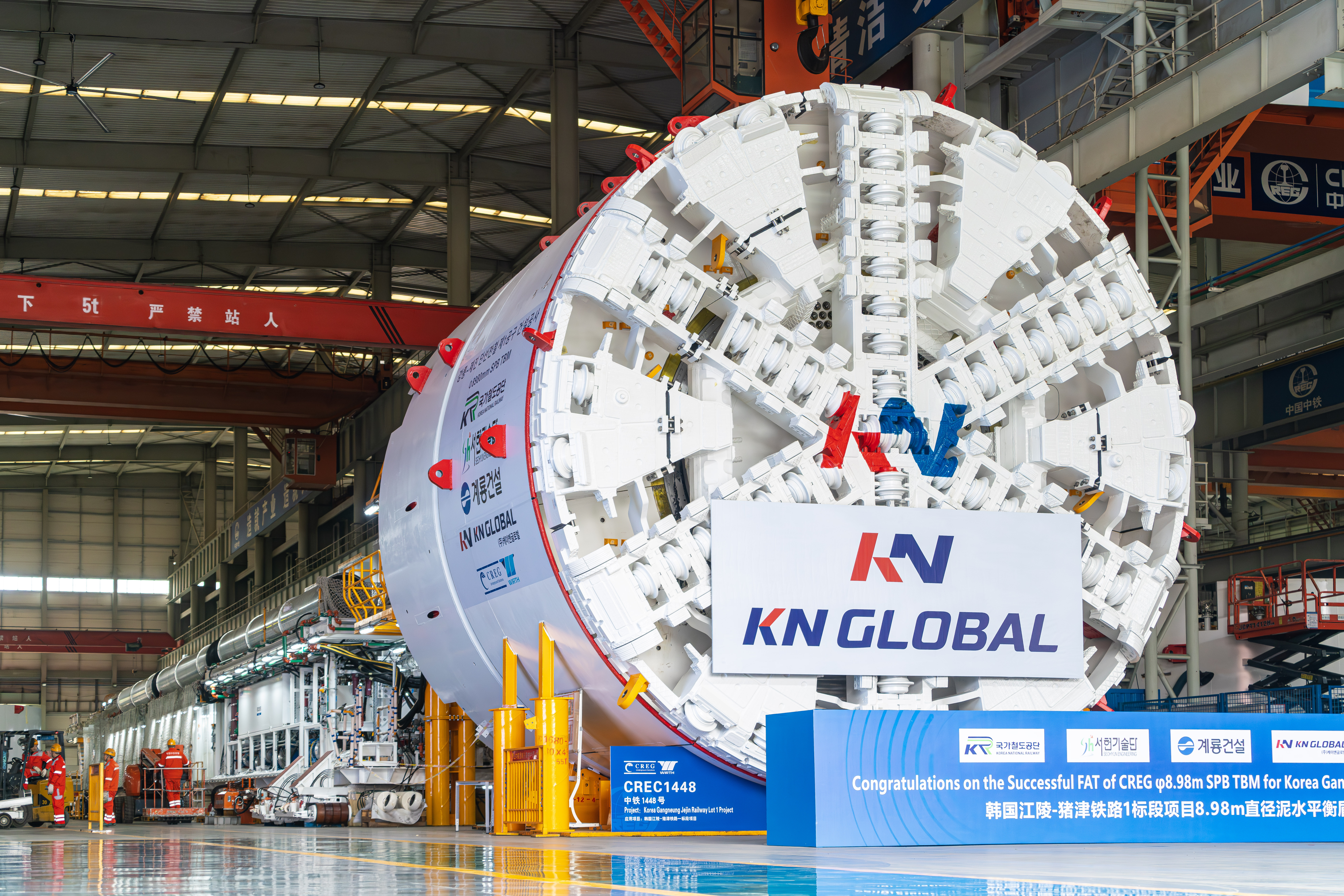The "CREC 1448" SPB TBM, developed by China Railway Engineering Equipment Group Co., Ltd. (hereinafter referred to as CREG), passed the acceptance inspection by the Korean contractor and was rolled off the production line in Zhengzhou, according to CREG on December 10. This machine, the largest diameter SPB TBM independently developed and exported by China to South Korea, will be used to construct the first section of the Gangneung–Pyeongtaek Railway project.

The first section of the Gangneung–Pyeongtaek Railway project is located in the original Gangdo area of Gangneung City, South Korea, bordered by the Sea of Japan to the west and the East Sea to the east. The entire route traverses coastal lowlands and the Taebaek Mountains. This section includes a tunnel that is 2,869 meters long, with a design gradient of 0.17% over a continuous uphill stretch, and a minimum turning radius of 900 meters. The project will pass through various complex geological layers, including gneiss, weathered soil, weathered rock, and soft rock, with the rock strength reaching 150 MPa. Both the design and construction face significant technical challenges.
In response to the project's unique geological conditions, CREC meticulously designed and developed the "CREC 1448" SPB TBM. This machine features a cutting diameter of 8.98 meters, a body length of approximately 76 meters, and a total weight of about 1,250 tons. It adopts a modular design for efficient assembly and commissioning. Equipped with a new slurry balance system, it can tackle the complex geological environment, where soft and hard strata alternate, ensuring stable and efficient tunneling. Additionally, the shield machine is equipped with an advanced intelligent control system that enables automated operation and precise control, significantly improving both construction efficiency and safety.
The Gangneung–Pyeongtaek Railway project is a key part of the East Coast Northern Line in South Korea, connecting the cities of Gangneung and Pyeongtaek. The entire project spans 110.6 kilometers and is divided into nine sections for phased construction. Notably, the "CREC 1448" SPB TBM will be deployed in the first section, which is the first to commence construction and features the most complex construction conditions. It is important to note that due to the aging of the original infrastructure, the East Coast Northern Line has been out of service since 1976. The successful rollout of the "CREC 1448" marks the imminent revival of this significant railway after more than 50 years of dormancy. Upon completion, the railway will become a new economic engine for the East Coast of South Korea, greatly stimulating regional economic growth and advancing the modernization of the transportation network. (Reporter & Translator: Yang Jiaxin Proofreader: Zhang Junping and Zhao Hanqing)


